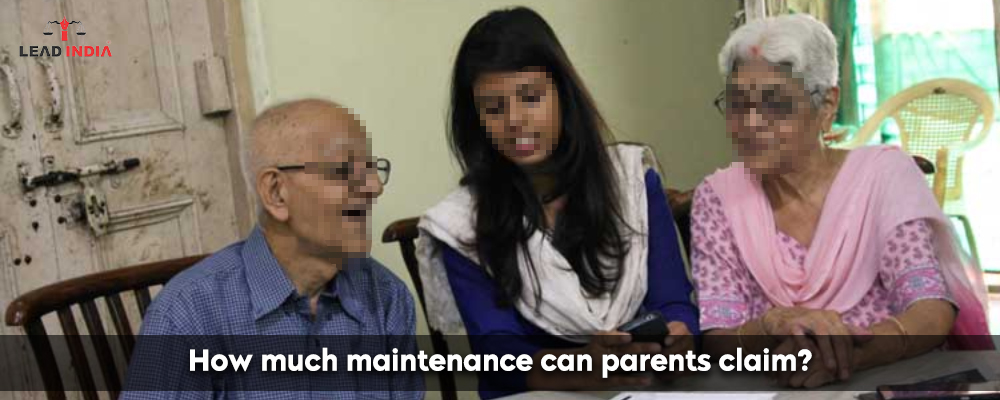The goal of the 2007 Maintenance and Welfare of Parents and Senior Citizens Act is to impose a legal duty on children and heirs to support elderly parents. It even permits state governments to build senior citizen residences in each district. State governments are authorized to establish maintenance tribunals and appellate tribunals to resolve disputes about elderly people’s maintenance under the Maintenance and Welfare of Parents and Senior Citizens Act, 2007. According to the act, parents and elderly citizens can petition a maintenance tribunal to request a monthly payment from their children or legal heirs.
Need A Legal Advice
The internet is not a lawyer and neither are you. Talk to a real lawyer about your legal issue

For whom is Maintenance under the Act Claimable?
Parents, grandparents, and senior citizens may all file maintenance claims under the 2007 Maintenance and Welfare of Parents and Senior Citizens Act, 2007.
- Parents: In the context of this act, parents are defined as biological, adoptive, stepfather, or stepmother. Nonetheless, it is important to note that the Act does not mandate that the parents be elderly people.
- Maternal and paternal grandparents are referred to as grandparents.
Requirements for making a claim Upkeep
The aforementioned individuals must be unable to support themselves from their earnings before being eligible to receive maintenance under this Act.
To whom is Maintenance due and payable?
Male and female adult children of parents and adult grandchildren of grandparents are obligated to provide maintenance to their parents and grandparents.
If elderly parents or grandparents are childless, they may be eligible to receive maintenance from their family members. The following circumstances apply to parents and elderly people who want to request maintenance from family members:
- The family member has to be a major.
- The relative ought to be able to support himself or herself financially.
- Either the senior citizen’s property is in the possession of the relative, or the senior citizen’s property will pass to them upon their death.
- Relatives are required to pay maintenance by their share of the senior citizen’s property inheritance if multiple relatives are likely to inherit it.
How to Submit a Maintenance Application
- A parent or senior citizen may apply under Section 4 of the Act to the tribunal established to settle maintenance claims by providing information about the person from whom maintenance is requested.
- In any district where the named citizen resides, maintenance proceedings may be started against the designated child or relative.
- Any other person or registered voluntary organization that has been permitted by the individual who is incapable of making an application may do so.
- After that, the tribunal will hold hearings, send notices to the children and/or relatives, and decide on a maintenance order.
- The senior citizen or parents, as applicable, may reapply to the tribunal if maintenance orders are not paid as directed by the tribunal within three months of the due date and without good cause.
- If there is a delay, the children or relatives risk fines or imprisonment for up to one month, which may be prolonged until the money is received.
- According to the act, counsel in a proceeding before the Maintenance Tribunal may represent no party. Nonetheless, parents or elderly people can hire the State Government’s designated Maintenance officer to represent them in front of the Maintenance Tribunal.
How much maintenance can parents claim?
The amount of money given to parents for maintenance is not set in stone. The decision is made case-by-case. The court will determine the amount owed to you after considering several factors, including:
- Status and living conditions of the legal heir or child
- Your needs and specifications (calculated reasonably)
- Whether you live apart from your legal heir or child
- Income, assets, and property value of the child or legal heir.
- Your wealth, income, and property values.
- The number of people who are required to pay maintenance.
The judge will determine the length of time maintenance must be paid, but it will typically be paid for the rest of your life.
Lead India provides various legal services, including free legal advice and internet information. We provide a facility in which you can talk to a lawyer and ask legal questions regarding the law here. Lead India’s lawyers can assist you with any legal issues. In India, Lead India provides free legal assistance online. In addition to receiving free legal advice online, Lead India allows users to pose inquiries to experts for free.



